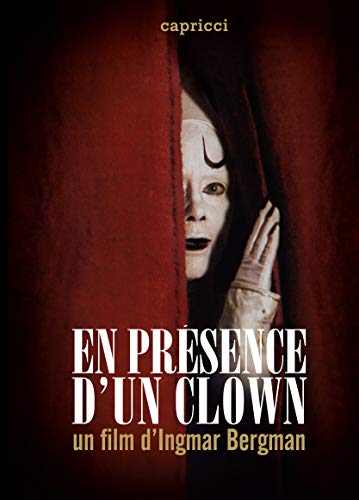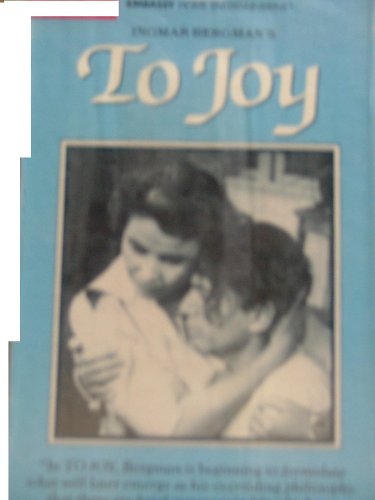Ingmar Bergman is probably one of the most interesting filmmakers you’ll ever get a chance to watch.
You can almost think of him as the modern equivalent of an artist like Vincent Van Gogh or Picasso.
He makes films that are completely different from one another, but they all share one thing in common: their unique style and their ability to make you think about your own life and how it relates to the world around you.
Best Ingmar Bergman Films
Here’s our list of the best Ingmar Bergman films:
1. Persona (1966)
Persona is a haunting exploration of identity, repression, and the blurred line between reality and illusion.
Director Ingmar Bergman’s masterful use of close-ups and stark black-and-white cinematography creates an intense intimacy between the viewer and the two female leads, Liv Ullmann and Bibi Andersson.
The film follows the relationship between a nurse, Alma (Andersson), and her patient, Elisabet (Ullmann), a famous stage actress who has suddenly stopped speaking.
As Alma attempts to break through Elisabet’s silence, the two women’s identities become increasingly entwined, blurring the line between who is the patient and who is the caregiver.
Bergman’s exploration of the human psyche is both captivating and chilling, as the film delves deeper into the characters’ subconscious desires and fears.
The use of imagery, such as the repeated shot of a young boy reaching out to touch a screen, adds to the dreamlike atmosphere of the film.
Persona is a thought-provoking and visually stunning masterpiece that leaves a lasting impression on the viewer.
Bergman’s exploration of the human psyche is both captivating and chilling, and the performances by Ullmann and Andersson are nothing short of phenomenal.
A must-watch for fans of psychological thrillers and art house cinema.
2. The Seventh Seal (1957)
The Seventh Seal is a masterpiece of world cinema that explores the human condition through the lens of death and the struggle for meaning in a seemingly meaningless world.
Directed by Ingmar Bergman and starring Max von Sydow, the film is a haunting and beautiful meditation on mortality, faith, and the search for truth.
The story follows Antonius Block (von Sydow), a knight returning from the Crusades who is met by Death (Bengt Ekerot) on a desolate beach.
Block challenges Death to a game of chess, hoping to prolong his life and find answers to his questions about the nature of existence.
Along the way, Block encounters a cast of characters, each grappling with their own fears and doubts in the face of the inevitable.
Bergman’s direction is masterful, weaving together themes of religion, philosophy, and existentialism with stunning visuals and poetic dialogue.
The iconic image of Death in his black hooded robe has become a symbol of the film’s haunting power, and von Sydow’s performance as the conflicted Block is a tour-de-force of acting.
The Seventh Seal is a challenging and profound film that rewards careful attention and contemplation.
It is a testament to the power of cinema to explore the deepest questions of the human experience, and a masterpiece that continues to captivate audiences over 60 years after its release.
- Polish Release, cover may contain Polish text/markings. The disk has English subtitles.
- Gunnar Björnstrand, Bengt Ekerot, Nils Poppe (Actors)
- Ingmar Bergman (Director)
- English (Subtitle)
3. Cries & Whispers (1972)
Bergman’s Cries & Whispers is a hauntingly beautiful masterpiece that explores the complexities of human relationships, mortality, and the search for meaning in life.
The film centers around three sisters who reunite at their estate when one of them falls ill.
As the sisters confront their past and present, their relationships unravel in a series of intense and emotional scenes.
Bergman’s use of color and light is stunning, with the vivid reds and whites of the sisters’ clothing contrasting against the melancholy tones of the interiors.
The film is also notable for its use of close-ups, which capture the intense emotions of the characters in a way that is both intimate and raw.
The performances are exceptional, with Liv Ullmann, Ingrid Thulin, and Harriet Andersson delivering some of the most powerful and nuanced acting of their careers.
Sven Nykvist’s cinematography is also outstanding, capturing the beauty and sadness of the Swedish landscape in a way that is both poetic and haunting.
Cries & Whispers is a deeply moving and thought-provoking film that lingers long after the credits roll.
It’s a testament to Bergman’s skill as a filmmaker and storyteller, and a must-see for anyone interested in cinema as an art form.
- Harriet Andersson, Liv Ullmann, Kari Sylwan (Actors)
- Ingmar Bergman (Director)
- English (Subtitle)
- English (Publication Language)
- Audience Rating: R (Restricted)
4. Fanny and Alexander (1982)
Fanny and Alexander is a true masterpiece from the legendary filmmaker Ingmar Bergman.
The film tells the story of two siblings, Fanny and Alexander, and their journey through life in early 20th century Sweden.
With stunning visuals and impeccable performances, this film captures the essence of family, love, and loss in a way that will leave you breathless.
Bergman’s attention to detail is apparent in every frame of this film, from the gorgeous set designs to the subtle nuances in the characters’ expressions.
The film feels like a dream, with a sense of otherworldliness that is both haunting and beautiful.
The cast is exceptional, with standout performances from Pernilla Allwin and Bertil Guve as Fanny and Alexander.
The chemistry between the siblings is palpable, and their journey through the film is both heartwarming and heartbreaking.
5. Wild Strawberries (1957)
Wild Strawberries is a masterful work of art that explores the complexities of life and death through the lens of an aging professor’s journey of self-discovery.
From the breathtaking cinematography to the poignant performances of its cast, this film is a true masterpiece of Swedish cinema.
Director Ingmar Bergman expertly weaves together themes of regret, redemption, and reconciliation in a way that is both thought-provoking and emotionally resonant.
The film’s protagonist, Professor Isak Borg, is brilliantly portrayed by Victor Sjöström, whose nuanced performance captures the character’s inner turmoil and eventual catharsis.
As the story unfolds, we are taken on a journey through Borg’s memories and dreams, which are rich with symbolism and allegory.
The film’s use of surreal imagery and dreamlike sequences adds to its ethereal quality, making it a truly unique cinematic experience.
Wild Strawberries is a must-see for fans of classic cinema and anyone who appreciates art that challenges the viewer to think deeply about the human experience.
It’s a timeless masterpiece that will stay with you long after the credits roll.
- Amazon Prime Video (Video on Demand)
- Victor Sjostrom, Bibi Andersson, Ingrid Thulin (Actors)
- Ingmar Bergman (Director) - Ingmar Bergman (Writer) - Allan Ekelund (Producer)
- (Playback Language)
- Audience Rating: NR (Not Rated)
6. Scenes from a Marriage (1973)
Scenes from a Marriage is a deeply emotional and thought-provoking film that explores the complexities of human relationships.
Directed by the legendary Ingmar Bergman, this 1973 masterpiece follows the journey of a married couple as they navigate the ups and downs of their life together.
The film is a
Their chemistry is palpable, and their portrayal of a couple struggling to keep their marriage together is both heart-wrenching and relatable.
The cinematography is also stunning, with the use of close-ups and long takes adding to the intimacy and intensity of the film.
The way the camera lingers on the characters’ faces, capturing every emotion and expression, is truly masterful.
What makes Scenes from a Marriage so remarkable is its ability to capture the nuances and complexities of marriage and relationships.
The film delves into the themes of love, fidelity, jealousy, and the fragility of human connections, and does so with a level of honesty and authenticity that is rare in cinema.
- Anita Wall, Erland Josephson, Jan Malmsjo (Actors)
- Ingmar Bergman (Director)
- English (Subtitle)
- English (Publication Language)
- Audience Rating: PG (Parental Guidance Suggested)
7. The Virgin Spring (1960)
The Virgin Spring is a haunting and intense film that explores the depths of human cruelty and the power of revenge.
The black and white cinematography creates an eerie atmosphere that perfectly complements the brutal and disturbing story.
The film follows the journey of a wealthy family whose daughter is brutally raped and murdered by a group of wandering herdsmen.
What follows is a gripping tale of revenge, justice, and redemption.
Director Ingmar Bergman masterfully handles the complex themes of the film, delving deep into the human psyche and exploring the dark side of human nature.
The performances by the cast are remarkable, particularly that of Max von Sydow, whose portrayal of the father seeking revenge is both powerful and heart-wrenching.
The final scene of the film, which features a stunning shot of a flowing spring, serves as a powerful metaphor for the cycle of life and death.
- Max von Sydow, Birgitta Valberg (Actors)
- Ingmar Bergman (Director)
8. The Magician (1958)
Bergman’s The Magician is a haunting and mesmerizing exploration of the human psyche. Set in 19th century Sweden, the film follows a traveling magician named Albert Vogler and his troupe as they perform for a skeptical audience in a small town.
As tensions rise and secrets are revealed, the line between reality and illusion becomes increasingly blurred.
Max von Sydow delivers a masterful performance as Vogler, capturing the character’s enigmatic nature and inner turmoil with remarkable depth.
Meanwhile, Bergman’s direction is as sharp and evocative as ever, weaving together elements of horror, drama, and dark comedy to create a truly unforgettable cinematic experience.
The Magician is a film that rewards careful attention and multiple viewings, as its layers of symbolism and ambiguity reveal themselves over time.
For fans of Bergman’s work, this is an essential entry in his filmography; for newcomers, it’s a mesmerizing introduction to one of cinema’s true masters. Highly recommended.
- Factory sealed DVD
- Max von Sydow, Ingrid Thulin, Naima Wifstrand (Actors)
- Ingmar Bergman (Director) - Allan Ekelund (Producer)
- English (Subtitle)
- English (Publication Language)
9. Autumn Sonata (1978)
Autumn Sonata is a hauntingly beautiful film that showcases the brilliance of two of cinema’s greatest icons- Ingmar Bergman and Ingrid Bergman.
The film delves deep into the complex and strained relationship between a mother and a daughter, brilliantly portrayed by Ingrid Bergman and Liv Ullmann, respectively.
The film is shot in Bergman’s signature style, with long takes and close-ups that capture the raw emotions of the characters.
The use of music, especially Chopin’s Prelude in E Minor, adds an ethereal quality to the film, making it a sensory experience for the audience.
The performances in this film are outstanding, with Ingrid Bergman giving one of her best performances of her career.
She portrays a world-renowned pianist who is consumed by her art, and her relationship with her daughter suffers as a result.
Liv Ullmann, on the other hand, plays a daughter who has spent her life longing for her mother’s love and approval, but is met with disappointment and hurt time and time again.
Autumn Sonata is a poignant and deeply moving film that explores themes of love, loss, and the complexities of human relationships.
It is a must-watch for any fan of Bergman’s work, and for those who appreciate powerful performances and masterful filmmaking.
- Hardcover Book
- Bergman, Ingmar (Author)
- English (Publication Language)
- 84 Pages - 04/25/1978 (Publication Date) - Pantheon Books (Publisher)
10. Through a Glass Darkly (1961)
Through a Glass Darkly is a haunting exploration of the human psyche that leaves a lasting impact on the viewer.
Directed by the legendary filmmaker Ingmar Bergman, this Swedish film tells the story of a family on a remote island, struggling to come to terms with their own inner demons.
The film’s cinematography is breathtaking, with Bergman’s signature close-ups and intimate camera work capturing the raw emotions of the characters.
The stunning black and white visuals create a sense of otherworldliness that perfectly complements the film’s themes of mental illness and existential despair.
The performances are equally impressive, particularly Harriet Andersson’s portrayal of Karin, a woman suffering from schizophrenia.
Andersson brings a heartbreaking vulnerability to the role, making Karin’s descent into madness all the more devastating.
Through a Glass Darkly is not an easy watch, but it’s a deeply rewarding one.
It’s a film that lingers in the mind long after the credits have rolled, inviting the viewer to contemplate their own fears and anxieties.
Bergman’s masterful filmmaking makes this a must-see for fans of arthouse cinema and psychological drama.
- Harriet Andersson, Max von Sydow (Actors)
- Ingmar Bergman (Director)
11. Shame (1968)
Shame is a hauntingly beautiful film that delves deep into the human psyche and explores the depths of despair and hopelessness.
Directed by Ingmar Bergman, the movie showcases the journey of a musician couple who are forced to navigate through a war-torn country in search of safety and shelter.
Max von Sydow and Liv Ullmann deliver powerful performances that leave a lasting impact on the viewer.
The chemistry between the two actors is palpable, and their emotions are raw and unfiltered.
The cinematography is stunning, with Bergman’s signature close-ups capturing every nuance of the characters’ expressions.
The film’s score is minimalistic yet effective, heightening the tension and creating an eerie atmosphere.
The themes of loss, trauma, and the human condition are explored with a delicate touch, leaving the audience with a sense of melancholy and introspection.
- Factory sealed DVD
- Michael Fassbender (Actor)
- Steve McQueen (Director) - Steve McQueen (Writer) - Emile Sherman (Producer)
- Spanish, English (Subtitles)
- English (Publication Language)
12. The Silence (1963)
The Silence is a hauntingly beautiful and deeply contemplative film that explores the themes of communication and isolation in a way that is both visually and emotionally striking.
Director Ingmar Bergman masterfully weaves together the stories of two sisters and a young boy as they navigate their way through a foreign city during a time of war.
The performances of the cast are simply magnificent, with Ingrid Thulin and Gunnel Lindblom delivering powerful and nuanced portrayals of the sisters, whose relationship is strained by their inability to communicate effectively.
The young Jorgen Lindstrom is equally impressive as the boy, whose innocence and curiosity provide a stark contrast to the dark and foreboding atmosphere of the film.
Bergman’s use of silence, both in the film’s soundtrack and in its visual style, is a stroke of genius, creating a sense of isolation and unease that permeates every frame.
The cinematography is equally impressive, with Sven Nykvist’s use of light and shadow adding depth and texture to the film’s already rich visual language.
- Ingmar Bergman (Director)
- English (Subtitle)
- Audience Rating: Unrated (Not Rated)
13. Face to Face (1976)
Face to Face is a gripping and emotionally charged drama that explores the psychological aftermath of a
violent attack. Directed by Ingmar Bergman, this film is a
Liv Ullmann delivers a powerhouse performance as the lead character, a successful psychologist who is brutally attacked in her home by a former patient.
As she struggles to come to terms with the trauma and its impact on her personal and professional life, she is forced to confront her own inner demons and re-evaluate her beliefs and values.
Bergman’s direction is impeccable, as he expertly weaves together multiple storylines and themes, including the nature of violence, the power of forgiveness, and the complexities of human relationships.
The film’s stark, minimalist visuals and haunting score create a palpable sense of tension and unease.
- Bergman, Ingmar (Author)
- English (Publication Language)
- 118 Pages - 04/25/1976 (Publication Date) - Pantheon Books (Publisher)
14. The Passion of Anna (1969)
The Passion of Anna is a deeply introspective and haunting film that explores the complexities of human relationships and the fragile nature of identity.
Directed by the legendary Swedish filmmaker Ingmar Bergman, the film tells the story of Andreas (Max von Sydow), a lonely man living on a secluded island who becomes entangled in a web of emotional turmoil with his new neighbor, Anna (Liv Ullmann).
Bergman’s use of stark, natural landscapes and intimate close-ups creates a sense of intimacy and isolation that perfectly captures the emotional depth of the characters.
The film’s themes of love, loss, and self-discovery are explored with a quiet intensity that is both mesmerizing and deeply affecting.
The performances of the lead actors are nothing short of extraordinary.
Max von Sydow delivers a nuanced performance as Andreas, a man grappling with his own emotional demons, while Liv Ullmann brings a raw vulnerability to the role of Anna, a woman haunted by her past.
- The Passion of Anna (1969) ( En passion )
- The Passion of Anna (1969)
- En passion
- Max von Sydow, Liv Ullmann, Bibi Andersson (Actors)
- Ingmar Bergman (Director) - The Passion of Anna (1969) ( En passion ) (Producer)
15. Hour of the Wolf (1968)
Hour of the Wolf is a haunting and surreal masterpiece from the legendary Swedish filmmaker Ingmar Bergman.
The film tells the story of an artist named Johan Borg (played brilliantly by Max von Sydow) who retreats to a remote island with his wife Alma (Liv Ullmann) in an attempt to escape the pressures of his work and his own inner demons.
As the title suggests, the film takes place during the “hour of the wolf,” which is the time between night and dawn when most people die and most babies are born.
This eerie atmosphere is perfectly captured by Bergman’s masterful use of light and shadow, and the film’s dreamlike quality is enhanced by its haunting score and unsettling sound design.
Hour of the Wolf is a deeply personal film that explores themes of creativity, madness, and the thin line between reality and fantasy.
It’s a film that demands multiple viewings to fully appreciate its layers of meaning and symbolism, and it’s one that will stay with you long after the credits roll.
- Amazon Prime Video (Video on Demand)
- Liv Ullman, Max Von Sydow (Actors)
- Ingmar Bergman (Director) - Ingmar Bergman (Writer) - Lars-Owe Carlberg (Producer)
- (Playback Language)
- Audience Rating: NR (Not Rated)
16. Smiles of a Summer Night (1955)
Smiles of a Summer Night is a charming and witty film that explores the complexities of love and desire in 19th century Sweden.
Director Ingmar Bergman masterfully weaves together a hilarious and poignant story that is both timeless and deeply human.
The film follows the romantic entanglements of a group of characters over the course of a single summer night.
With its lush cinematography, lush landscape, and impeccable period costumes, Smiles of a Summer Night transports viewers to a bygone era of elegance and sophistication.
The cast is simply outstanding, with standout performances from Ulla Jacob as the innocent and alluring Anne, and Gunnar Björnstrand as the cynical and world-weary lawyer Fredrik Egerman. The supporting is equally impressive, with each actor bringing a unique and memorable touch to their roles.
But what truly sets Smiles of a Summer Night apart is its razor-sharp dialogue and clever plot twists.
Bergman’s script is both hilarious and profound, exploring the many nuances of human relationships with a keen eye for detail and a deep understanding of the human condition.
- Factory sealed DVD
- Ulla Jacobsson, Eva Dahlbeck, Harriet Andersson (Actors)
- Ingmar Bergman (Director)
- English (Subtitle)
- English (Publication Language)
17. Summer with Monika (1953)
Summer with Monika is a classic Swedish film that tells a simple yet captivating story of young love and its consequences.
Directed by the legendary Ingmar Bergman, the film follows the story of Harry and Monika, two young lovers who escape their mundane lives in Stockholm and embark on a summer adventure on a small boat.
As the story unfolds, we see the couple’s passionate romance, their struggles to survive, and their eventual downfall.
The film beautifully captures the essence of youth, love, and freedom, and explores the consequences of our actions and choices.
The cinematography in Summer with Monika is breathtaking, with stunning shots of the Swedish archipelago and the sea.
The film also benefits from the strong performances of its leads, Harriet Andersson and Lars Ekborg, who bring depth and authenticity to their characters.
- Harriet Andersson, Lars Ekborg (Actors)
- Ingmar Bergman (Director)
- English (Subtitle)
- English (Publication Language)
- Audience Rating: R (Restricted)
18. Saraband (2003 TV Movie)
Saraband is a masterpiece of contemporary cinema that explores the complexities of human relationships through the lens of a family drama.
The film, directed by the legendary Ingmar Bergman, tells the story of an aging couple, Marianne and Johan, who reunite after several years of separation.
Their reunion is not a joyful one, however, as they are forced to confront the emotional scars of their past and the bitterness of their present.
The performances in Saraband are nothing short of extraordinary, with Liv Ullmann and Erland Josephson delivering nuanced and powerful portrayals of their characters.
The film’s slow pace and minimalist style allow the actors to fully inhabit their roles and bring a sense of authenticity to the story.
Bergman’s direction is masterful, as always, with his signature use of close-ups and long takes creating an intimate and immersive viewing experience.
The film’s haunting score, composed by Johan Sebastian Bach, adds an extra layer of emotional depth to the already poignant story.
Saraband is not an easy watch, but it is a deeply rewarding one.
It is a film that will stay with you long after the credits roll, forcing you to reflect on the complexities of human relationships and the fragility of life.
- Erland Josephson, Liv Ullmann, Börje Ahlstedt (Actors)
- Ingmar Bergman (Director)
- English, French, Portuguese (Subtitles)
- Audience Rating: R (Restricted)
19. Brink of Life (1958)
Brink of Life is a poignant and emotionally charged drama that explores the lives of three women who are about to give birth in a maternity ward.
Directed by Ingmar Bergman, this Swedish film is a
The film is set almost entirely within the confines of the hospital, creating a sense of confinement and claustrophobia that mirrors the women’s experiences.
The stark and minimalist cinematography further accentuates the emotional weight of the story, with close-ups of the women’s faces revealing their pain, fear, and hope.
The performances of the lead actresses are exceptional, particularly Eva Dahlbeck as the rebellious and independent Stina who refuses to conform to societal expectations, and Bibi Andersson as the fragile and vulnerable Hjordis.
Harriet Andersson also delivers a standout performance as the brash and outspoken Ingrid, whose tough exterior hides a deep sense of insecurity.
Brink of Life is not an easy film to watch, as it deals with heavy themes such as childbirth, miscarriage, and death.
20. Sawdust and Tinsel (1953)
Sawdust and Tinsel is a haunting and mesmerizing film that explores the dark side of the circus world. Directed by the legendary Ingmar Bergman, the film follows the story of a group of circus performers who are struggling to keep their show afloat.
The film offers a nuanced and complex portrayal of these characters, highlighting their flaws and vulnerabilities in a way that feels both raw and authentic.
One of the things that makes Sawdust and Tinsel so powerful is its visual style. The film is shot in stunning black and white, with stark contrasts that create a sense of foreboding and unease.
The circus itself is depicted as a decaying and decrepit world, full of broken-down performers and dilapidated tents.
The contrast between the glamour of the circus and its underlying darkness is what makes this film so fascinating to watch.
The performances in Sawdust and Tinsel are also outstanding. The lead actors, Åke Grönberg and Harriet Andersson, deliver powerful and emotional performances that bring their characters to life.
The supporting cast is equally impressive, with each performer adding depth and complexity to the film’s already intricate story.
- Polish Release, cover may contain Polish text/markings. The disk has English subtitles.
- English (Subtitle)
21. Winter Light (1963)
Winter Light is a hauntingly beautiful film that captures the essence of existentialism in the most profound and poignant way possible.
Directed by Ingmar Bergman, this 1963 masterpiece depicts the struggles of a priest who has lost his faith and is unable to provide solace to his parishioners, who are seeking guidance in the face of the impending nuclear war.
The film is shot in stark black and white, which adds to the somber and introspective mood of the story. The performances are exceptional, particularly by Gunnar Bjornstrand who portrays the priest with a remarkable depth of emotion that is both relatable and heart-wrenching.
The cinematography is stunning, with Bergman’s signature close-ups and long takes that capture the nuances of human expression in a way that is both beautiful and unsettling.
Winter Light is a film that demands your full attention and rewards you with a profound sense of introspection and reflection.
It is a contemplative and deeply spiritual work that explores the complexities of faith and the human condition.
22. The Serpent’s Egg (1977)
The Serpent’s Egg is a haunting and bleak film that explores the depths of human despair in the aftermath of World War I.
Directed by Ingmar Bergman, this film follows the character of Abel Rosenberg (played by David Carradine), an American living in Berlin who is struggling to come to terms with the recent suicide of his brother.
The film is beautifully shot, with Bergman’s signature style of close-ups and stark lighting creating a sense of unease and tension throughout.
The set design and costumes also transport the viewer back to the 1920s, with the dark and oppressive atmosphere of the post-war era palpable in every scene.
Carradine delivers a powerful performance as a man on the brink of collapse, haunted by his past and struggling to find hope in a world that seems determined to crush him.
Liv Ullmann, who plays Abel’s love interest, is also excellent, bringing a sense of warmth and humanity to a film that is otherwise very bleak.
- Liv Ullmann, David Carradine (Actors)
- Ingmar Bergman (Director)
- English (Subtitle)
- Audience Rating: R (Restricted)
23. The Magic Flute (1975)
“The Magic Flute” is a visually stunning and musically enchanting film adaptation of Mozart’s famous opera.
Director Ingmar Bergman has created a fantastical world filled with colorful characters and magical landscapes that perfectly complement the fairy tale-like story.
The performances are top-notch, with Jose van Dam as Papageno stealing the show with his comedic timing and charmingly awkward demeanor.
The music, of course, is the highlight of the film, with Mozart’s beautiful compositions brought to life by the talented cast and orchestra.
While some may find the pacing a bit slow at times, the overall experience is a joyous celebration of music, love, and the power of imagination.
“The Magic Flute” is a must-watch for anyone who loves opera or simply wants to be transported to a magical world filled with music and wonder.”
- Josef Köstlinger, Irma Urrila, Elisabeth Eriksson (Actors)
- Ingmar Bergman (Director)
- English (Subtitle)
- Audience Rating: NR (Not Rated)
24. The Rite (1969 TV Movie)
The Rite is a fascinating and haunting exploration of the supernatural.
Directed by none other than William Friedkin, the mastermind behind The Exorcist, this TV movie packs a punch in just over an hour.
The story revolves around a young seminary student who is sent to Rome to study exorcism. Along the way, he encounters a seasoned exorcist who takes him under his wing and introduces him to the rituals and practices of this ancient art.
As they delve deeper into the world of possession and demonic forces, the student begins to question his own faith and beliefs.
The performances in The Rite are top-notch, with Michael Parks as the troubled student and Hal Holbrook as the experienced exorcist.
The chemistry between these two actors is palpable, and they bring a sense of authenticity and gravitas to their roles.
The cinematography and production design are also noteworthy, with Friedkin using light and shadow to create a sense of foreboding and unease.
The scenes of exorcism are particularly well-done, with the use of practical effects adding to the realism of the situation.
- The Ritual ( Riten ) ( The Rite )
- The Ritual
- Riten
- The Rite
- Ingmar Bergman, Gunnar Björnstrand, Ingrid Thulin (Actors)
25. From the Life of the Marionettes (1980 TV Movie)
“From the Life of the Marionettes” is a haunting exploration of the dark recesses of the human psyche.
Bergman’s masterful direction and the stunning performances from the cast create an unsettling atmosphere that lingers long after the credits have rolled.
The film delves deep into the complexities of relationships, power dynamics, and sexuality, revealing the insidious ways in which they can influence and corrupt our lives.
The stark black and white cinematography adds to the film’s sense of unease, creating a world that feels both familiar and alien.
While not an easy watch, “From the Life of the Marionettes” is a powerful and unforgettable work that showcases Bergman’s unparalleled talent as a filmmaker.
26. After the Rehearsal (1984 TV Movie)
After the Rehearsal, directed by Ingmar Bergman, is a thought-provoking exploration of love, loss, and the complexities of human relationships.
The film follows the story of a director and his leading actress as they navigate their personal and professional lives, struggling to find meaning and fulfillment amidst the chaos of their daily existence.
One of the most striking aspects of this film is its raw and unflinching portrayal of human emotion.
Bergman’s direction is masterful, capturing the subtleties of his characters’ inner turmoil with a keen eye for detail.
The performances by the cast are equally impressive, with Erland Josephson and Lena Olin delivering nuanced and powerful performances that stay with you long after the credits roll.
Another standout feature of After the Rehearsal is its stunning cinematography.
The film’s rich, moody visuals are a testament to Bergman’s skill as a filmmaker, and the way he uses light and shadow to create a sense of intimacy and emotional depth is truly remarkable.
- After the Rehearsal ( Efter repetitionen )
- After the Rehearsal
- Efter repetitionen
- Erland Josephson, Ingrid Thulin, Lena Olin (Actors)
- Ingmar Bergman (Director) - After the Rehearsal ( Efter repetitionen ) (Producer)
27. Summer Interlude (1951)
Summer Interlude is a lyrical masterpiece from the Swedish director Ingmar Bergman.
The film follows the story of Marie, a prima ballerina who, upon receiving a diary from a long-forgotten summer romance, is transported back in time to the idyllic days of her youth.
Bergman’s direction is sublime, capturing the beauty of the Swedish archipelago with stunning cinematography that highlights the natural splendor of the region.
The film’s emotional depth is also noteworthy, as it explores themes of love, loss, and the passage of time with sensitivity and nuance.
The performances are equally impressive, with Maj-Britt Nilsson delivering a captivating portrayal of Marie, imbuing her character with both grace and vulnerability.
Birger Malmsten also shines as Henrik, Marie’s former love interest, bringing a sense of youthful energy to the role.
- Factory sealed DVD
- Maj-Britt Nilsson, Birger Malmsten (Actors)
- Ingmar Bergman (Director)
- English (Subtitle)
- English (Publication Language)
28. In the Presence of a Clown (1997 TV Movie)
In the Presence of a Clown is a hauntingly beautiful TV movie that explores the life and art of a fictional Swedish artist named Albert Johansson.
Directed by the legendary filmmaker Ingmar Bergman, this film is a masterful blend of drama, humor, and tragedy.
At the heart of the film is the performance of Börje Ahlstedt, who plays Albert Johansson.
Ahlstedt’s portrayal of the artist is both charismatic and vulnerable, capturing perfectly the contradictions and complexities of the character. His interactions with his young protégé, played by Bergman regular Erland Josephson, are particularly poignant, as they explore the themes of legacy and mortality.
with all of Bergman’s films, In the Presence of a Clown is visually stunning.
The cinematography is breathtaking, with the use of light and shadow creating an atmosphere that is at once ethereal and grounded in reality.
The film’s score, composed by the legendary Swedish composer Lars Johan Werle, is also exceptional, adding to the film’s emotional depth.
While the film deals with weighty themes, it is never heavy-handed or didactic. Bergman’s script is witty and insightful, and the film is frequently laugh-out-loud funny.
Ultimately, In the Presence of a Clown is a moving meditation on art, love, and the human condition.
It is a must-see for fans of Bergman’s work, as well as anyone who appreciates thoughtful, intelligent cinema.
- Bergman Ingmar (Author)
- French (Subtitle)
- French (Publication Language)
- Audience Rating: Unrated (Not Rated)
29. To Joy (1950)
To Joy is a classic Ingmar Bergman film that explores the complex emotions and relationships of a struggling orchestra violinist, Stig, and his wife, Marta.
The film is a poignant portrayal of the harsh realities of life and the sacrifices we make in pursuit of our passions.
Bergman’s masterful direction and the stunning cinematography capture the bleakness of the characters’ lives, while the beautiful music adds a touch of hope and beauty.
The performances by the lead actors, Stig Olin and Maj-Britt Nilsson, are captivating and raw, bringing a sense of authenticity to the film.
To Joy is not an easy watch, as it deals with themes of depression, marital strife, and the harshness of the music industry.
However, the film’s emotional depth and powerful storytelling make it a must-see for any fan of Bergman’s work.
30. A Ship to India (1947)
A Ship to India is an emotionally charged and thoughtvoking film that explores the complicated relationships between colonizers and the colonized.
The story follows a group of Swedish sailors who are tasked with transporting a group of Indian immigrants to a British colony in East Africa.
As the journey progresses, tensions rise and the passengers’ hopes and dreams are put to the test.
The film’s cinematography is stunning, capturing the vastness and beauty of the sea, as well as the cramped and uncomfortable conditions on board the ship.
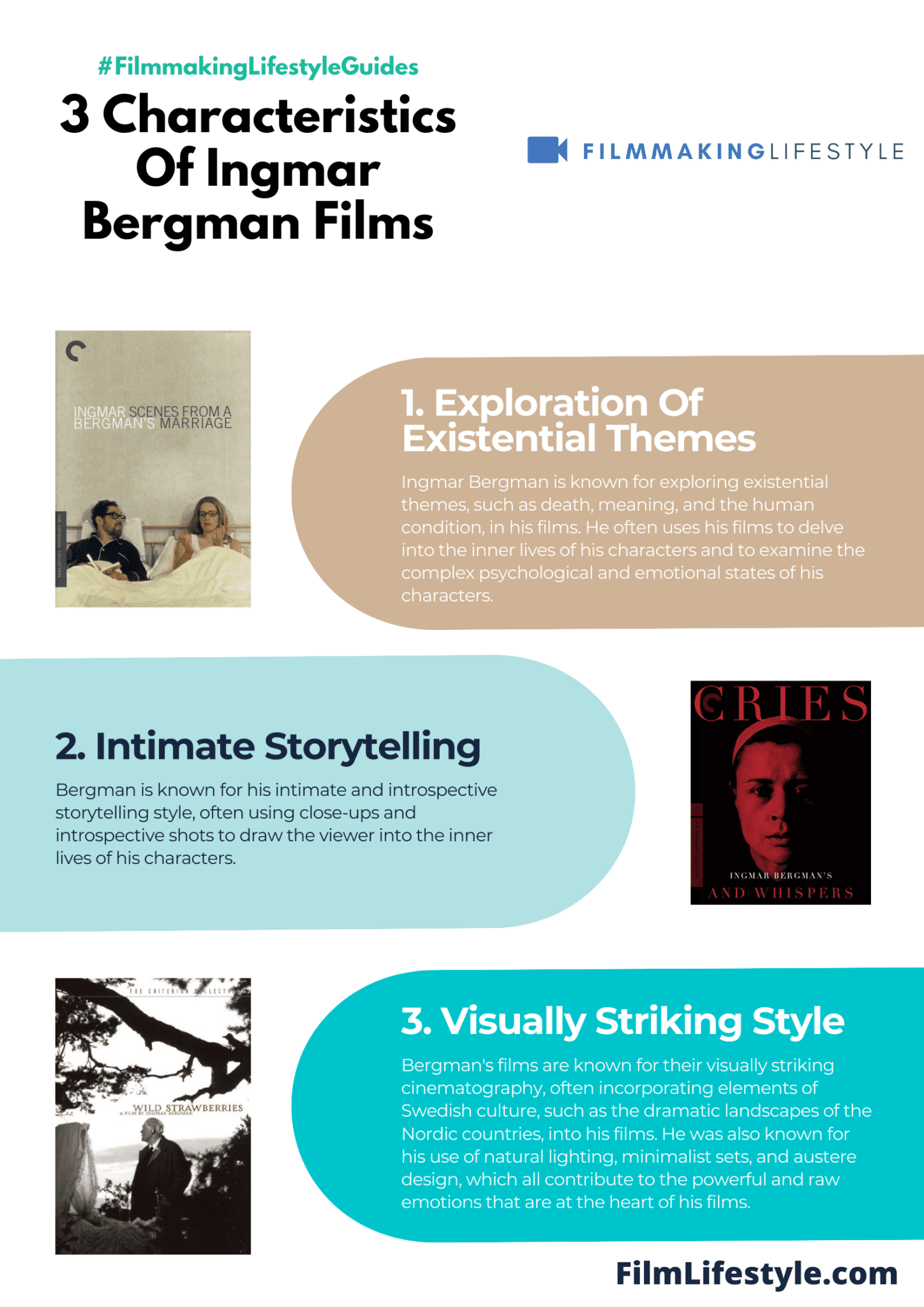
The performances are also top-notch, with the actors portraying their characters’ struggles and conflicts with great sensitivity and depth.
What makes A Ship to India so powerful is its unflinching examination of the legacy of colonialism and the impact it has had on both the colonizers and the colonized.
The film doesn’t shy away from depicting the racism and prejudice that were prevalent during that time, but it also shows the complexity of the situation and the ways in which the characters try to navigate it.
Characteristics of Ingmar Bergman Films
There are a number of characteristics that define Ingmar Bergman’s films, but they can be summed up in a few words.
This is not always easy to do, since there are often many different elements in his films.
However, there is one element that always appears, and it is the basic character of the film.
The first characteristic of Bergman’s films is that they are about people who are not like us.
The characters in these films are often people who have been through some kind of trauma or tragedy in their lives, and this has caused them to become isolated from society and from other people.
They cannot relate to others because they have lost touch with their humanity, which means they cannot relate to other human beings on an emotional level.
Another characteristic of Bergman’s films is that they deal with universal themes such as death, loneliness and guilt.
These themes can be seen in almost every single one of his movies, even though he does not always deal with them directly on screen.
They are present simply because these are subjects that occur throughout all cultures at all times in history and across all cultures.
Best Ingmar Bergman Films – Wrapping Up
Ingmar Bergman’s life and work is a fascinating one. He was not only a prolific director, but also a writer, actor and producer.
His works have been honored with numerous awards, including an Academy Award for Best Foreign Language Film.
Bergman’s films are always filled with deep meanings and themes. They focus on the human condition and how we should treat each other.
Ready to learn about some other Film Movements or Film History?

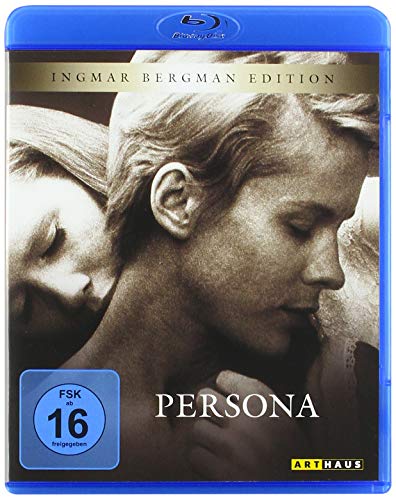

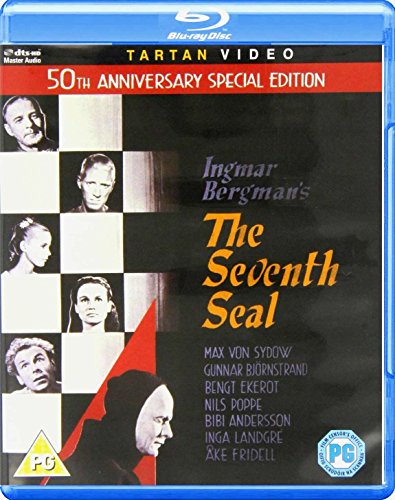
![Cries and Whispers [Blu-ray]](https://m.media-amazon.com/images/I/41FByrgkv5L.jpg)



![Scenes from a Marriage (The Criterion Collection) [DVD]](https://m.media-amazon.com/images/I/41ef-5CMDnL.jpg)
![The Virgin Spring [Blu-ray]](https://m.media-amazon.com/images/I/51SdWqtFGQL.jpg)
![The Magician (The Criterion Collection) [Blu-ray]](https://m.media-amazon.com/images/I/51bICJs87TL.jpg)
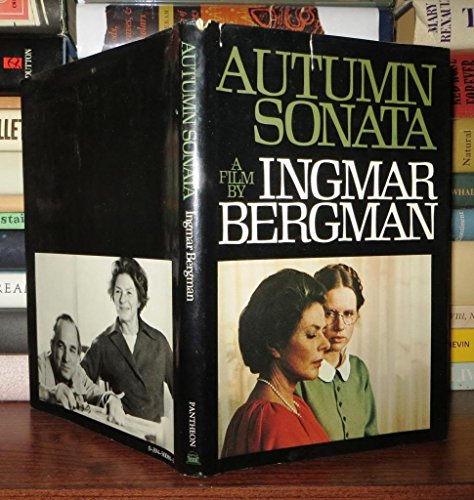
![Through a Glass Darkly [Blu-ray]](https://m.media-amazon.com/images/I/01RmK+J4pJL.gif.jpg)





![Smiles of a Summer Night (The Criterion Collection) [Blu-ray]](https://m.media-amazon.com/images/I/51q9hGnDEoL.jpg)
![Summer with Monika (The Criterion Collection) [Blu-ray]](https://m.media-amazon.com/images/I/41UAgJ8vtnL.jpg)


![Sawdust And Tinsel (1953) [The Criterion Collection] [Blu-ray] [2018]](https://m.media-amazon.com/images/I/41CdJtuLc1L.jpg)
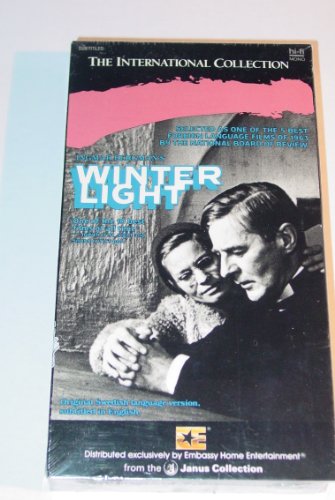


![The Rite [DVD] [1969]](https://m.media-amazon.com/images/I/41olnvUJ1FL.jpg)
![From the Life of the Marionettes [DVD] [1980]](https://m.media-amazon.com/images/I/41nmtAf376L.jpg)
![After the Rehearsal [DVD] (1984)](https://m.media-amazon.com/images/I/41f5kPmnrVL.jpg)
![Summer Interlude (The Criterion Collection) [Blu-ray]](https://m.media-amazon.com/images/I/51IaOd1hijL.jpg)
